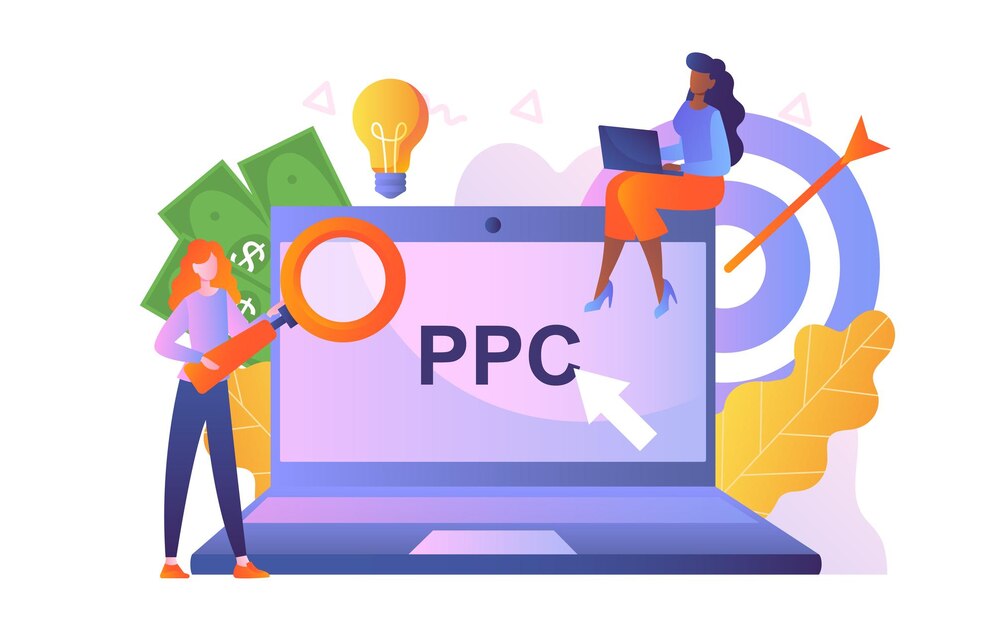PPC management is a systematic approach to maximising the performance and return on investment (ROI) of your pay-per-click campaigns. It includes competitive analysis, keyword research, bid management, split testing, and continuous optimisation to achieve the desired result from your campaigns. This process involves keyword refinement, choosing the best paid ad channels, and detailed audience and competitor analysis. Techniques such as A/B testing and performance monitoring are also used to fine-tune ads for better engagement and conversion.
By outsourcing PPC management to professionals, businesses can streamline the process of strategising, launching, and refining their campaigns. PPC agency Stockport can handle the intricacies of campaign management, allowing brands to focus on their core operations while experts optimise their digital advertising efforts. Whether you want to increase brand visibility or drive targeted traffic, professional PPC management ensures that your ad spend delivers measurable success.
Keyword Optimisation
Keywords make the connection between your PPC advertisements and what audience members search. PPC managers determine audience behavior, keyword performance indicators or KPIs, to find the most beneficial keywords to advertise. There are four steps involved with optimisation:
- Including new keywords: Based on changes in audience behavior and trends.
- Negative keywords: Identifying terms or phrases to block that would normally waste ad dollars.
- Match type changes: Aligning the match types for the campaigns to be achieved: exact, phrase, or broad.
Channel Optimisation
The choice of channel and message can make or break your campaign. PPC managers identify the best channels and create strategies based on that. Some of the most popular options include:
- Search engine ads: Text or display ads on Google Ads and Bing Ads.
- Shopping ads: Platforms like Amazon Advertising for product-based campaigns.
- Social media ads: Channels like Facebook, Instagram, and LinkedIn for targeted outreach.
Each channel has different strengths. For example, search ads target active queries, whereas social media ads target engaging certain demographics. Thus, by utilising these platforms in a strategic way, your campaigns reach more and perform better.
Add Campaign Monitoring
PPC campaigns are designed to continually be improved. Only after launching an ad, then it is followed by monitoring of performance. This is where performance metrics such as CTR, conversion rates, and ROAS come into action. A campaign changed over the course of more than two years with relentless optimisation, delivering an astonishing 471% ROAS. Campaigns remain successful and aligned to business objectives if they are reviewed and optimised on a regular basis.

Audience Analysis
Successful paid advertising depends on understanding your target audience. It’s not just about targeting keywords but also crafting messages that resonate with your audience’s needs. Ask yourself:
- What are they searching for?
- What solutions do they expect?
- How can you meet their expectations?
Targeted messaging ensures your ads are relevant and engaging to the viewer, encouraging the desired actions. The wrong message to the wrong audience is a waste of budget and missed opportunity.
Split Testing
Split testing (A/B testing) allows you to compare two or more versions of campaign elements to determine which one performs better. You can test:
- Search ads
- Landing pages
- Keywords
- Ad formats
For proper insights, test one element at a time. This will ensure clear results and help you fine-tune your campaigns effectively.
Competitive Analysis
Understanding competitors’ strategies is as important as analysing your own. Investigate their: Ad performance Keywords Messaging Audience engagement Use these insights to refine your PPC management strategy to outperform your competitors. This competitive analysis further helps in digging deeper into trends and audience preference which inturn makes your campaign stand out.
Use Negative Keywords
In as much as you want to have as many positive keywords as possible, the negative keywords are just as important to refine your audience. You save your business from throwing money at irrelevant clicks. For instance, if you’re advertising new bikes, adding “old” as a negative keyword will prevent your ad from appearing in searches for “old bikes.” This simple strategy keeps your campaigns focused on reaching potential customers genuinely interested in your products or services.
Regularly Check Your Quality Score
Google’s Quality Score is a highly valuable metric for small businesses that run PPC campaigns. A high quality score can, therefore, bring lower costs per click (CPC) and better ad placements. Small businesses often operate with tight budgets, making it crucial to monitor Quality Scores frequently. A good score ensures you’re spending wisely and not overspending on ads that aren’t delivering results. .
Conclusion
Effectiveness in PPC would require continuous, systematic effort and an expert. Bringing a professional agency or team might help to ensure that the best possible results, measurable and scalable, are coming from the optimisation process. Look for a more elevated campaign via a stockport PPC Agency that guarantees growth and profit. With better strategies, this is the means by which one gains a competitive online presence.
Also Read: What Bad SEO Practices Can Impact Your Website Negatively?






